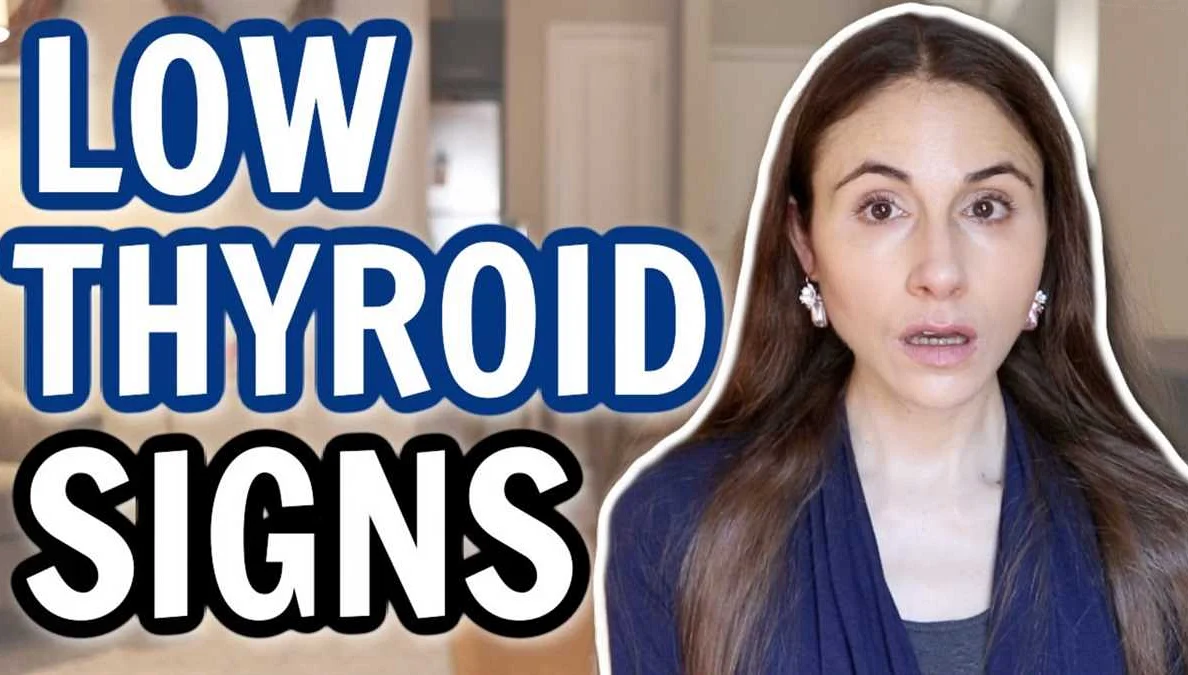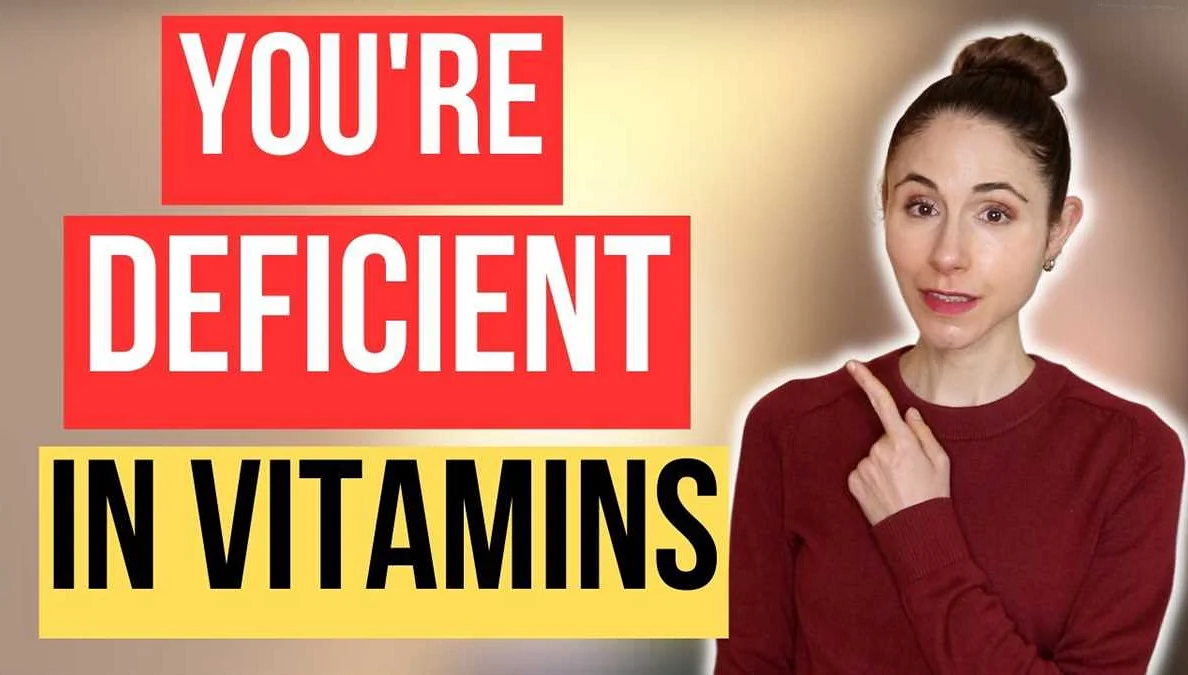How to Recognize Hypovitaminosis: Doctor Androsova’s Expert Insights
Learn how to recognize hypovitaminosis with insights from Doctor Androsova. Discover the symptoms and signs of vitamin deficiencies, and understand the importance of a balanced diet for maintaining optimal health.
In today’s fast-paced world, it’s easy to neglect our own health and well-being. We often prioritize work and other responsibilities over taking care of ourselves, leading to a decline in our overall health. One often overlooked aspect of our well-being is our vitamin levels. Deficiencies in essential vitamins can have a detrimental effect on our bodies, leading to a condition known as hypovitaminosis.
Doctor Androsova, a renowned expert in the field of nutrition, has dedicated her career to studying the impact of vitamin deficiencies on human health. Through her extensive research and clinical experience, she has gained valuable insights into the recognition and treatment of hypovitaminosis. In this article, we will delve into Doctor Androsova’s findings and learn how to identify the signs and symptoms of this condition.
One of the key factors in recognizing hypovitaminosis is understanding the role that vitamins play in our bodies. Vitamins are essential nutrients that our bodies need in small amounts to function properly. They play a crucial role in various bodily functions, including metabolism, immune system function, and maintaining healthy skin and hair. Without adequate levels of vitamins, our bodies can suffer from a range of health issues, ranging from fatigue and muscle weakness to more serious conditions such as scurvy and beriberi.
Doctor Androsova emphasizes the importance of regular health check-ups and blood tests to determine our vitamin levels. These tests can help identify any deficiencies and allow for early intervention. Additionally, she advises individuals to be mindful of their diet and ensure they are consuming a balanced and nutritious diet. By incorporating a variety of fruits, vegetables, whole grains, and lean proteins into our meals, we can help maintain optimal vitamin levels and prevent the onset of hypovitaminosis.
Understanding Hypovitaminosis: Insights from Dr. Androsova
When it comes to understanding hypovitaminosis, Dr. Androsova is a leading expert in the field. With years of experience and extensive research, Dr. Androsova has uncovered valuable insights into this prevalent condition.
Hypovitaminosis refers to a deficiency of essential vitamins in the body, which can lead to a range of health issues. It is often caused by poor diet, malabsorption issues, or certain medical conditions. Recognizing the signs and symptoms of hypovitaminosis is crucial for proper diagnosis and treatment.
According to Dr. Androsova’s research, one of the most common forms of hypovitaminosis is vitamin D deficiency. This can have significant implications for overall health, as vitamin D plays a crucial role in bone health, immune function, and maintaining proper levels of calcium and phosphorus in the body.
In addition to vitamin D deficiency, Dr. Androsova has also observed cases of hypovitaminosis B12, which can lead to anemia, fatigue, and neurological problems. B vitamins are essential for various processes in the body, including energy production, nerve function, and the metabolism of carbohydrates, proteins, and fats.
Dr. Androsova emphasizes the importance of a balanced diet and regular check-ups to prevent and detect hypovitaminosis. She recommends incorporating foods rich in vitamins into one’s diet, such as fruits, vegetables, whole grains, lean meats, and dairy products.
In some cases, dietary changes alone may not be sufficient to address hypovitaminosis. Dr. Androsova may prescribe vitamin supplements to correct deficiencies and restore optimal vitamin levels in the body.
It is important to note that hypovitaminosis can have long-term effects on overall health if left untreated. Working closely with a healthcare professional like Dr. Androsova is essential to develop an individualized treatment plan based on the specific vitamin deficiencies and underlying causes.
In conclusion, understanding hypovitaminosis requires insights from experts like Dr. Androsova. By recognizing the signs, getting regular check-ups, and making necessary dietary changes, individuals can prevent and address hypovitaminosis to ensure optimal health and well-being.
Deficiency Signs and Symptoms

Hypovitaminosis, or vitamin deficiency, can manifest in various signs and symptoms depending on the specific vitamin that is lacking. Some common signs and symptoms of hypovitaminosis include:
| Vitamin A | Night blindness, dry skin, weakened immune system |
| Vitamin B12 | Fatigue, weakness, tingling in hands and feet, anemia |
| Vitamin C | Easy bruising, slow wound healing, weakened immune system |
| Vitamin D | Weak bones, muscle weakness, increased risk of fractures |
| Vitamin E | Muscle weakness, vision problems, impaired immune function |
| Vitamin K | Excessive bleeding, easy bruising, poor blood clotting |
If left untreated, hypovitaminosis can lead to serious health problems. It is important to be aware of the signs and symptoms of vitamin deficiency and seek medical attention if you suspect you may be deficient in any of the essential vitamins.
Common Causes of Hypovitaminosis

Hypovitaminosis, or vitamin deficiency, can occur due to a variety of different reasons. Some of the most common causes include:
- Poor diet: A diet that lacks a variety of fresh fruits, vegetables, and whole grains can lead to vitamin deficiencies. Consuming mainly processed and fast foods can also contribute to hypovitaminosis.
- Inadequate sun exposure: Vitamin D deficiency is often caused by insufficient exposure to sunlight. This is particularly common in individuals who live in areas with limited sunlight or spend most of their time indoors.
- Gastrointestinal disorders: Certain gastrointestinal disorders, such as celiac disease, Crohn’s disease, and ulcerative colitis, can impair nutrient absorption, leading to hypovitaminosis.
- Medication use: Some medications, including anticonvulsants, proton pump inhibitors, and certain cholesterol-lowering drugs, can interfere with vitamin absorption or metabolism.
- Alcohol abuse: Excessive alcohol consumption can interfere with the absorption, storage, and metabolism of vitamins, leading to deficiencies.
- Pregnancy and breastfeeding: The nutritional demands increase during pregnancy and lactation, and deficiencies may arise if the diet is not properly balanced.
- Old age: As individuals age, their ability to absorb and metabolize certain vitamins may decrease, increasing the risk of hypovitaminosis.
It’s important to address the underlying causes of hypovitaminosis to prevent complications and ensure optimal health. A balanced diet, adequate sun exposure, and regular check-ups with a healthcare professional can help identify and manage vitamin deficiencies.
Diagnosing Hypovitaminosis
Diagnosing hypovitaminosis can be challenging, as its symptoms can be vague and easily mistaken for other conditions. However, there are several methods that doctors may use to determine if a person has a deficiency in a specific vitamin:
| Blood tests | Doctors may perform blood tests to measure the levels of specific vitamins in the bloodstream. This can help identify any deficiencies. |
| Physical examination | During a physical examination, doctors may look for specific signs of vitamin deficiency, such as dry skin, pale complexion, or brittle nails. |
| Medical history | Understanding the patient’s medical history, including their diet and lifestyle habits, can provide valuable insights into possible vitamin deficiencies. |
| Symptom assessment | Doctors will assess the patient’s reported symptoms and compare them to the known symptoms of vitamin deficiencies to help make a diagnosis. |
Combining these methods can help doctors accurately diagnose hypovitaminosis and determine the appropriate treatment plan, which may include dietary changes and vitamin supplements.
Treating Hypovitaminosis: Dr. Androsova’s Recommendations
Dr. Androsova recommends several strategies for treating hypovitaminosis. First and foremost, she advises her patients to focus on improving their diet. A diet rich in fruits, vegetables, and whole grains can help replenish vitamin stores and promote overall health.
In addition to dietary changes, Dr. Androsova often prescribes vitamin supplements to her patients. These supplements can provide a concentrated dose of vitamins and help address any deficiencies more quickly. However, she emphasizes that supplements should not be a substitute for a healthy diet, but rather a complement to it.
Dr. Androsova also highlights the importance of regular exercise in treating hypovitaminosis. Exercise helps improve circulation and metabolism, which can enhance the absorption and utilization of vitamins in the body. She recommends incorporating a combination of cardiovascular and strength training exercises into one’s routine.
Furthermore, Dr. Androsova emphasizes the need for adequate sunlight exposure in treating certain types of hypovitaminosis. Sunlight is a natural source of vitamin D, and spending time outdoors can help boost vitamin D levels in the body. However, she advises her patients to take precautions and avoid excessive sun exposure to protect their skin.
Lastly, Dr. Androsova stresses the importance of regular check-ups and blood tests to monitor vitamin levels. This allows for early detection of any deficiencies or imbalances and enables timely intervention. By regularly assessing vitamin status, Dr. Androsova can tailor treatment plans to each individual’s needs and ensure optimal health.